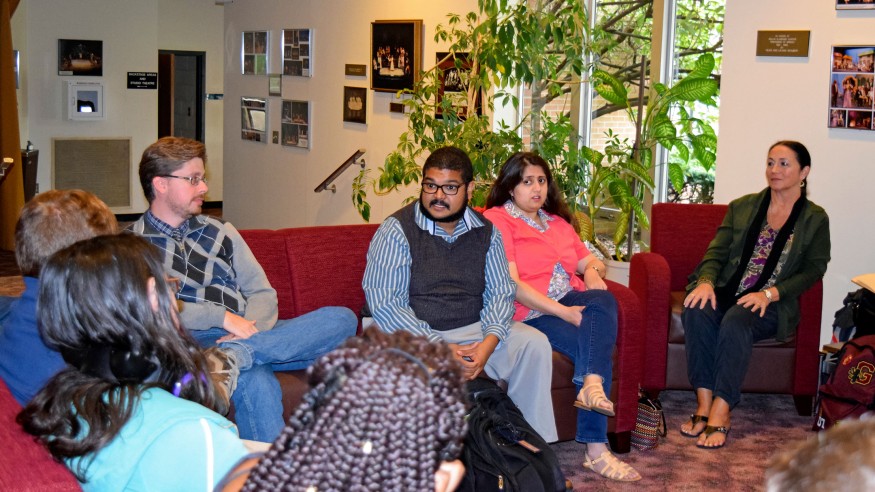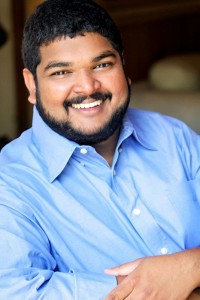
‘Take Opportunities’
OWU Graduate Discusses Professional Acting Career

Sliding resumes under random theatre doors is one way to break into the industry – a trick Kenneth De Abrew ’05 knows firsthand.
“Take opportunities,” the professional equity actor says. “You’re walking by, you see a theatre, have a resume ready in your backpack. I’ve [slid resumes under theatre doors] in New York, and people think I’m nuts.”
De Abrew majored in theatre and zoology when he attended Ohio Wesleyan. Since graduating, he has been cast in several theatre productions, films, and TV series, including “Orange is the New Black,” “Gotham,” “Atlanta,” “This is Where I Leave You,” and “Allá te espero.”
De Abrew grew up in Sri Lanka and got into theatre because his mother thought acting would help him improve his English-language skills.
“I did one play and got really into it,” he says. “It’s kind of like a disease, so you do one, you want to do more, and I kept doing it to a point where my parents were worried that I wouldn’t have a stable career.”
De Abrew visited OWU’s Chappelear Drama Center on Sept. 1 to chat with current students interested in pursuing a theatre career.
“This is a small school and a very small department, so you have to learn to make use of all the resources you have,” he says.
For example, De Abrew says, as a student he worked with all of the theatre and dance professors to learn from each of them. OWU’s size and personal attention enables students to experiment and try out different ideas, he adds.
“This is a place where, if you’re up for it, you can try some crazy stuff without hurting yourself, because if you try to do this in New York City, how are you going to afford the space?” he says.
After graduating from OWU, De Abrew received a master’s degree in acting from Louisiana State University and continued to perform in regional theatre productions, including roles in Great River Shakespeare’s “Twelfth Night,” North Carolina Shakespeare’s “Romeo and Juliet,” and Raleigh Ensemble Players’ “Last Days of Judas Iscariot.”
The most important thing, De Abrew says, is to always be prepared. Monologues have to be so strong that they’re good even on a bad day.
“Work on your craft,” he says. “Work on it on a constant basis because opportunity presents itself whenever it presents itself and you cannot control it.”
Learn more about De Abrew at www.kennethdeabrew.com.
